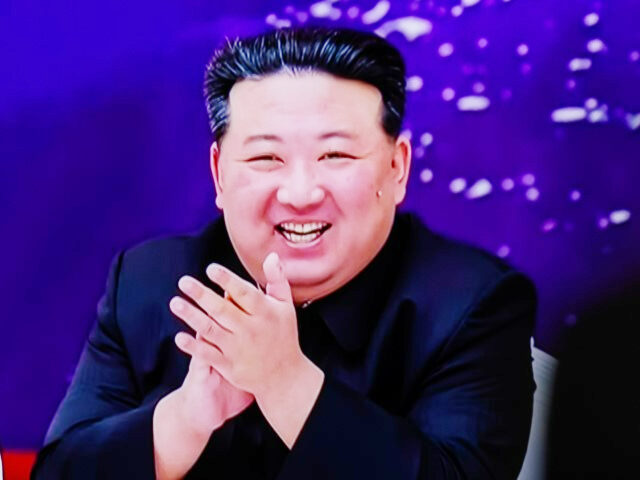North Korea announced on Friday that it tested a nuclear-capable underwater attack drone, a weapon that could theoretically wipe out entire port cities.
North Korean state media said the test was intended as an intimidating response to United States-South Korean military drills.
“The Underwater Weapon System Institute under the DPRK Academy of Defense Science conducted an important test of its underwater nuclear weapon system ‘Haeil-5-23’ under development in the East Sea of Korea,” Pyongyang’s Korean Central News Agency (KCNA) reported.
DPRK stands for Democratic People’s Republic of Korea, the North Korean regime’s preferred name for itself. “Haeil” is the name North Korea assigned to a series of undersea drones it has been working on since 2012. Only a few of the earlier tests were publicized, but dictator Kim Jong-un claimed on Friday he has overseen no fewer than 29 tests over the past decade.
“Our army’s underwater nuke-based countering posture is being further rounded off and its various maritime and underwater responsive actions will continue to deter the hostile military maneuvers of the navies of the U.S. and its allies,” KCNA wrote, quoting an unnamed North Korean military official.
When Pyongyang rolled out its latest generation of Unmanned Underwater Vehicles (UUV) in March 2023, it said the purpose of the weapon was to “stealthily infiltrate into operational waters and make a super-scale radioactive tsunami through underwater explosion to destroy naval striker groups and major operational ports of the enemy.”
Friday’s test supposedly involved the Haeil-5-23 drone “cruising along an oval and pattern-8 course at an underwater depth of 80 to 150 meters in the East Sea of Korea for 59 hours and 12 minutes” before detonating a non-nuclear warhead against a mockup of an “enemy port.”
KCNA said the test “verified” the reliability of the Haeil platform and “fully confirmed its lethal strike capability.”
Outside observers were skeptical of North Korea’s claims and especially skeptical that the Haeli UUV is a devastating super-weapon that could slip past South Korea’s undersea defenses.
“What we do know about it, if it’s close to what they tested last year, is that this underwater unmanned vehicle is likely quite slow. It’s a very exotic system,” professor Mason Richey of Seoul’s Hankuk University of Foreign Studies told Al Jazeera News on Friday.
“It probably runs only something around eight knots per hour, which is somewhere around 14 or 15 kilometers per hour. It’s probably quite vulnerable to anti-submarine warfare,” he said.
Richey thought the UUV test was probably a bit of theatrical “political signaling” to show North Korea remains infuriated by United States and South Korean military exercises. The United States, South Korea, and Japan conducted a large-scale three-day combined naval exercise off South Korea’s Jeju Island this week, including the aircraft carrier USS Carl Vinson.
The North Korean Defense Ministry issued a statement denouncing “the U.S. and its followers” for their “reckless acts of seriously threatening the security of the DPRK” and threatening “catastrophic consequences” if further such drills are held.
The UUV test was conducted the day after Kim Jong-un announced he was abandoning North Korea’s long-professed goal of “reunification” with South Korea, and demanded his national constitution be rewritten to designate South Korea as the North’s “primary foe and invariable principal enemy.”
South Korean intelligence has long accused Pyongyang of exaggerating the capabilities of its UUV program, but it asked the U.N. Security Council (UNSC) to “break the silence” on North Korea’s rapidly escalating weapons tests at an emergency session on Thursday.
The UNSC session was called to discuss North Korea’s test of an intermediate-range ballistic missile on Sunday, the first provocative launch by Pyongyang in 2024.
The launch was particularly troubling because North Korea claims to have developed solid-fuel rocket engines, a system that can be prepared and launched much faster than liquid-fueled missiles. North Korea already has solid-fuel short-range missiles, but the intermediate-range weapon tested on Sunday could be capable of hitting U.S. bases in Guam or Okinawa.
U.S. Deputy Ambassador to the U.N. Robert Wood agreed with South Korea’s representatives that North Korea’s provocative weapons tests “are of great concern.”
Wood noted the North Korean tests are violations of UNSC sanctions, and asked “all Security Council members to enforce those resolutions.”

COMMENTS
Please let us know if you're having issues with commenting.